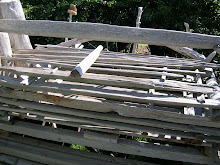
**Dualities
I am prone to take it all a little too seriously, so when I read something like this quote from Henry James, I forget to whom he addresses his concern. In a manner of negotiating dualities I have to playfully step aside myself and observe how drawn I am to defend my position. Playfulness requires little defensiveness; it’s made of other stuff. So I offer the quote and then smile at my own gullibility. It’s a familiar scarf, wonderful on a cool evening, stangling as I dance though the woods.
“When one turns to the magnificent edifice of the physical sciences, and one sees how it was reared: what thousands of disinterested moral lives of men lie buried in its mere foundations: what patience and postponement, what choking down of preference, what submission to the icy laws of outer fact are wrought into its very stones and mortar: how absolutely impersonal it stands in its vast augustness-then how besotted and contemptible seems every little sentimentalist who comes blowing his voluntary smoke wreaths, and pretending to decide things from out of his private dream!”
He casts scientific activities out of the realm of play, and yet dining with scientists and hearing them talk about the process they deeply enjoy, they reveal threads of play. So an eleventh assumption sets play opposed to work, separating them.
As long as we maintain dualities of play and work or serious and silly we will forever be critical of one at the expense of the other and lose out on the benefit of each. The assumption of this duality that we reinforce erodes the value inherent in human creativity. Some opposites we learn create false dualities.
Our culture tends to define things in terms of dualities and will create them where they don’t exist and teach us to accept them. We teach that work represents responsible behavior while play represents irresponsible behavior. Play wastes time while work accounts for our time. Play becomes some illegitimate stepchild of work. Upon closer inspection, work might represent the cardboard version of play. Work mocks up, while play serves up the real thing. Play represents an irresistible irrepressible avenue of possibility that we haven’t yet fully entertained. Negative descriptions of play dissuade us as children from continuing to exercise our imagination to solve problems facing us. Far too quickly we get caught up in the right answers and the only way to do things. So what approximates truth?
When we consider the work play duality, we realize that it brainwashes us to accept that we would give up play and assume work as our proper activity to make life meaningful. If, however, we release the play work duality, the words lose some of their power. Play can gain its own seriousness and work can acknowledge some inefficient use of time The ease with which we reconstruct this duality amazes me. Take the most entrenched beliefs about play and work. Dissolve the duality by affirming that play can be an aspect of work and work an aspect of play. The work of some becomes the play of others. It seems obvious that if we could arrange what we do as work to be what draws us into play, we might all engage in activities in a more enjoyable manner.

No comments:
Post a Comment